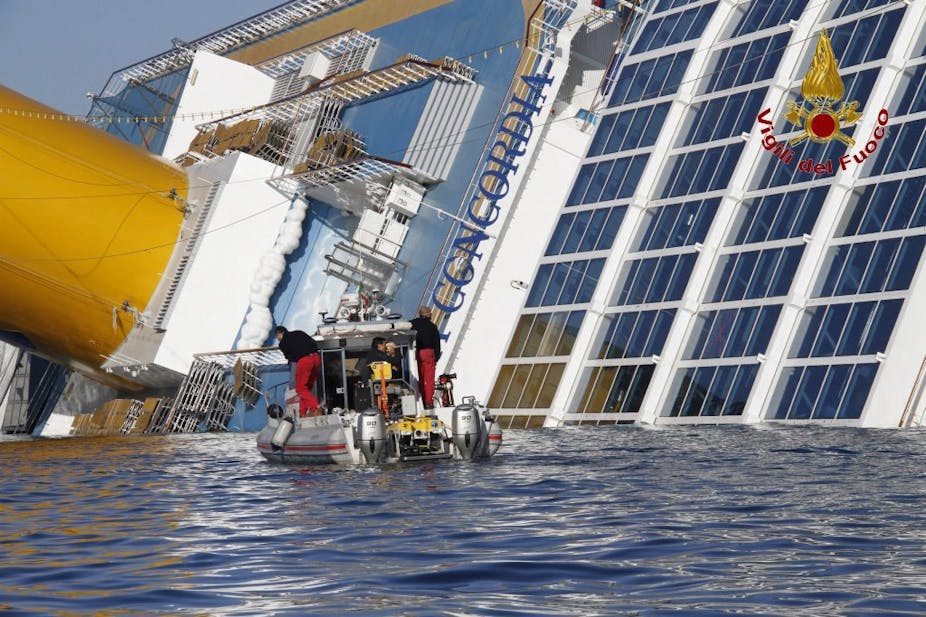During the decade since the 9/11 attacks and the ensuing “war on terror”, cruise ship, resort and theme park tourist bubbles have been remarkably terror-free.
The tourist-only environments on cruise ships, in tropical resorts and in theme parks are a tempting target for those who most want to create panic, fear and insecurity among relaxation seekers.
The atmosphere conjured up in these settings is stress-free, removed from everyday worries. If a panic-inducing incident were to occur it would be a potential media photographer’s dream.
The photogeneity of the stricken Costa Concordia – which crashed on rocks last Friday off the Tuscan coast with 23 people still missing and 11 confirmed dead – is a reminder.
But despite the genuine prospects of misfortune, cruise ships have been remarkably terror-free. There have certainly been alarming pirate-related incidents off the Horn of Africa.
In beach settings, the Bali bombings and the Indian Ocean tsunami were notable misfortunes. But to date the tourism industry has been remarkably successful at maintaining peace and tranquility in its bubbles. Of course resort security has been beefed up markedly since 9/11.

But tourism bubbles have managed to stay largely “under the radar” and the security presence has been discrete with minimal disruption to the ethos of “fun in the pool”. Contrast this with the airline industry, where the emphasis around security initiatives such as on-board air marshals, airport security machines and even plastic knives has been a regular reminder of the security-related fears of flying and the associated inconveniences.
The Costa Concordia sinking has involved a regrettable loss of life and grieving families and is a blow to the image of cruising generally and for Carnival in particular; it’s also a reminder that tourist bubbles have remained exactly that for most of the past decade.
Hopefully this will remain the case and the security industry will never need to take over our cruiseships, resorts and theme parks in the way that has occurred so obviously on our airlines and in our airports.

